|
Genres, Themes, Actors, and Directors:
- French Films
- Jean-Luc Godard Films
- Play Adaptations
- Satires and Spoofs
- Soldiers
Review:
Jean-Luc Godard’s fifth feature film is an odd-duck tale even for him — an adaptation of an adaptation (by Roberto Rossellini) of a play by
Beniamino Joppolo that is at first (for quite a long portion of its short running time) merely puzzling and annoying, but ultimately makes a powerful satirical punch in the face of consumerism, gullibility, and blind patriotism. It’s hard to believe how incredibly stupid and trustful Ulysses (Mase) and Michaelangelo (Juross) are when told that their king (their king?!) has personally invited them to serve him, in exchange for taking and doing whatever they want while at war.
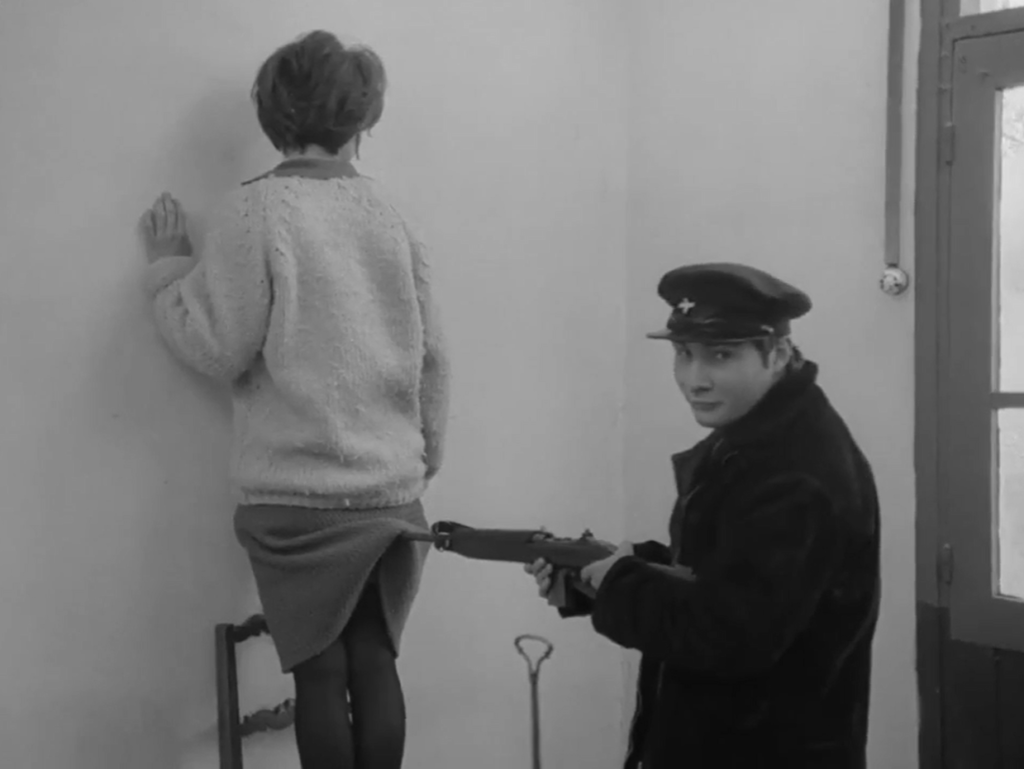
In between watching Ulysses and Michaelangelo’s brutish, self-serving exploits, we see and hear snippets of letters they write home (taken from real-life letters of soldiers):
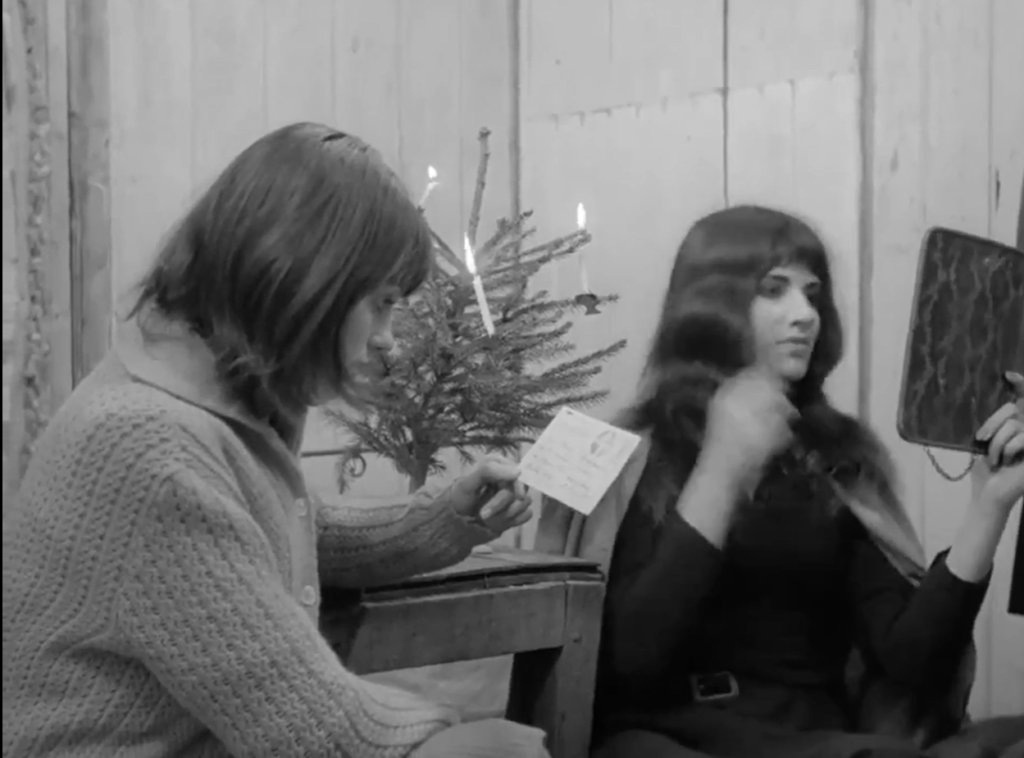
It’s only once the men return home and show the “spoils of war” they’ve collected to their wives that we understand the depth of absurdist irony Godard is reaching for. This unusual film is most definitely not for all tastes, but will — of course — be of interest to hardcore Godard fans.
Notable Performances, Qualities, and Moments:
- Raoul Coutard’s cinematography
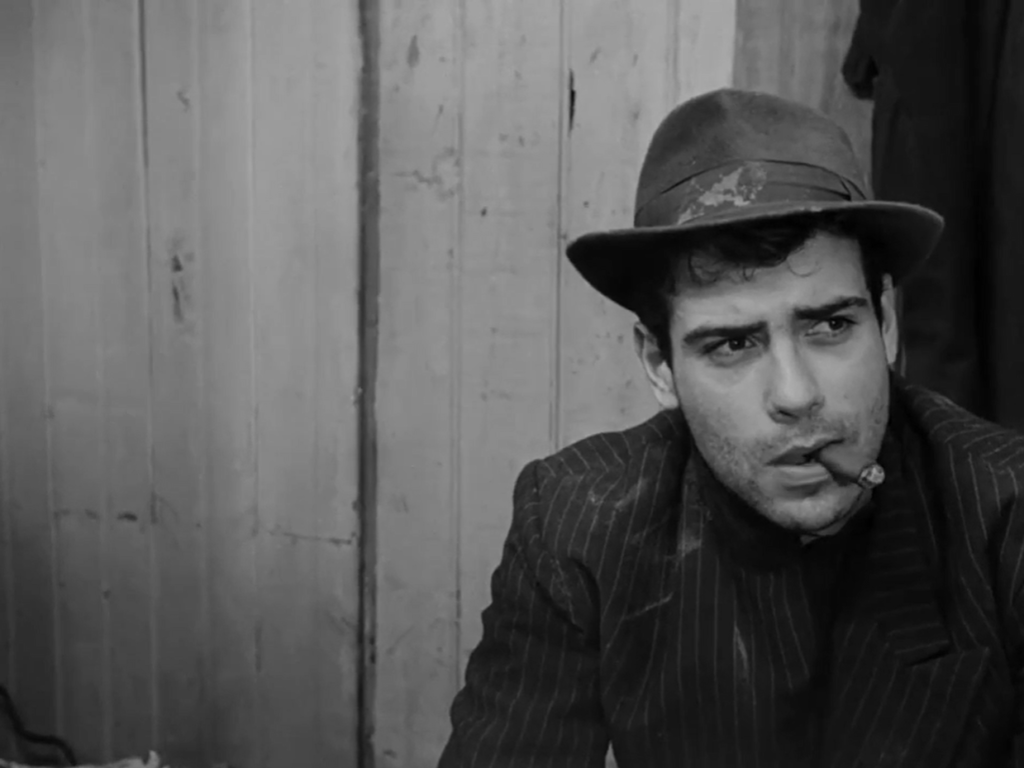
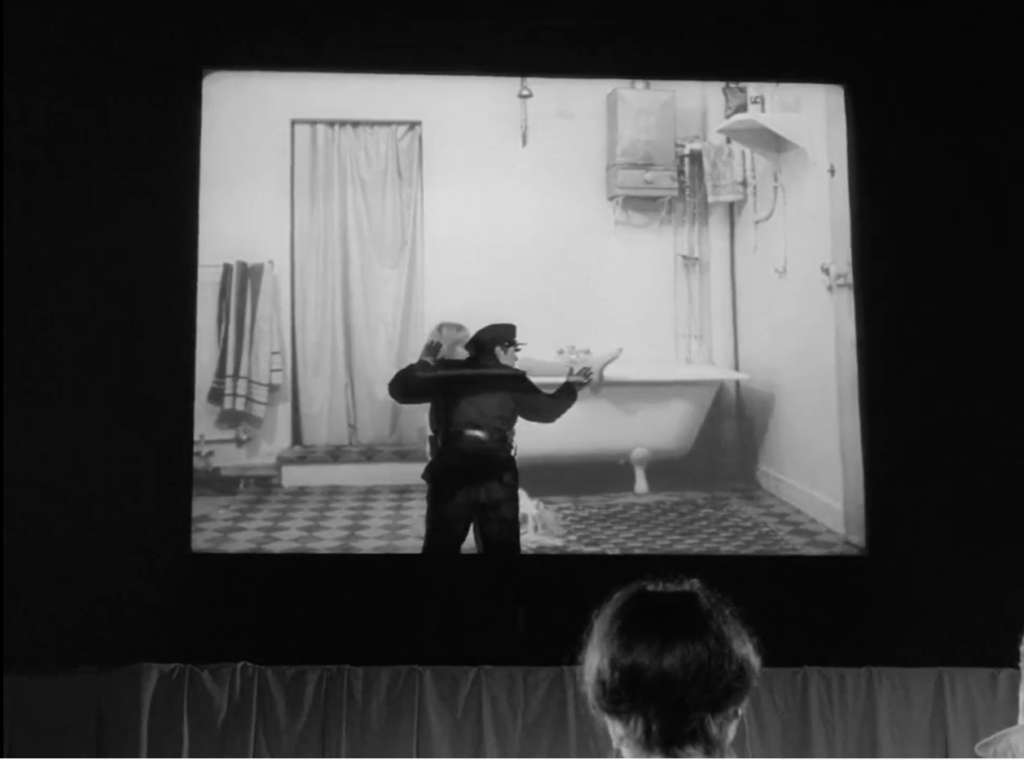
- The truly surreal postcard sequence
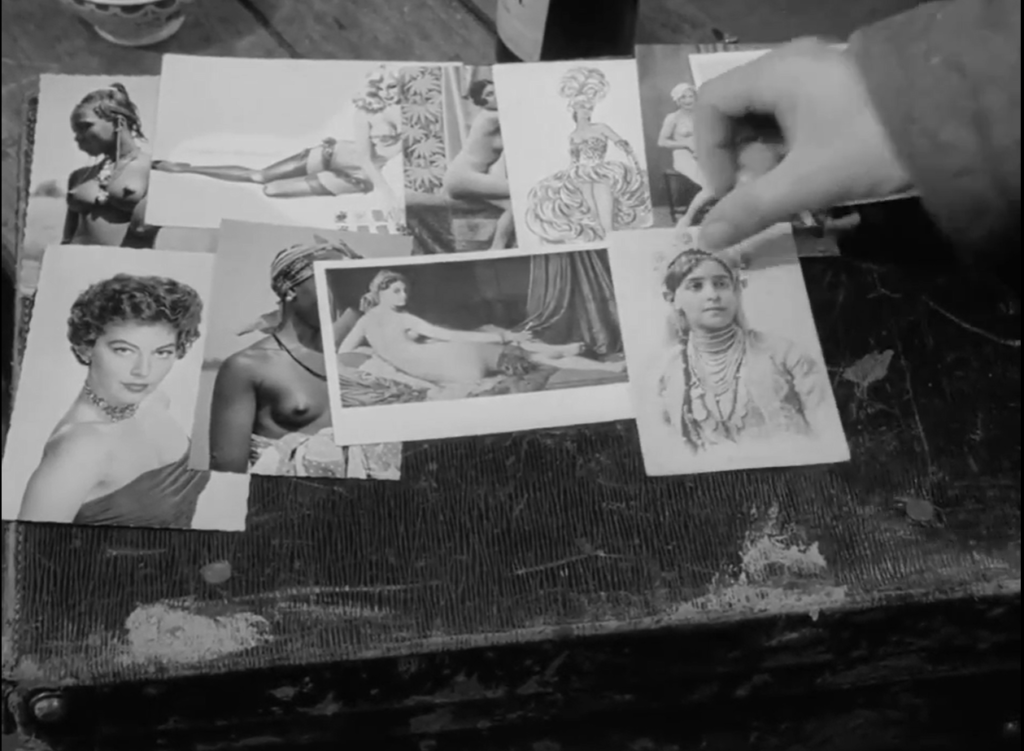
Must See?
No; you can skip this one unless you’re curious. Listed as a Personal Recommendation in the back of Peary’s book.
Links:
|
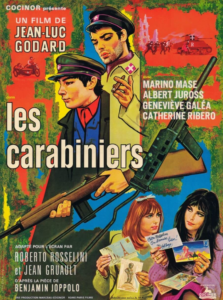





One thought on “Carabiniers, Les (1963)”
First viewing (7/27/21). Not must-see – only for Godard fans (as just about every Godard film is).
This is an early one and it’s almost got a real narrative (surprisingly). But it’s still uninteresting. it’s sluggish and sometimes ridiculous. The shock ending feels tacked-on for effect. (I suppose I just wasn’t able to appreciate the depth of Godard’s absurdist irony.)